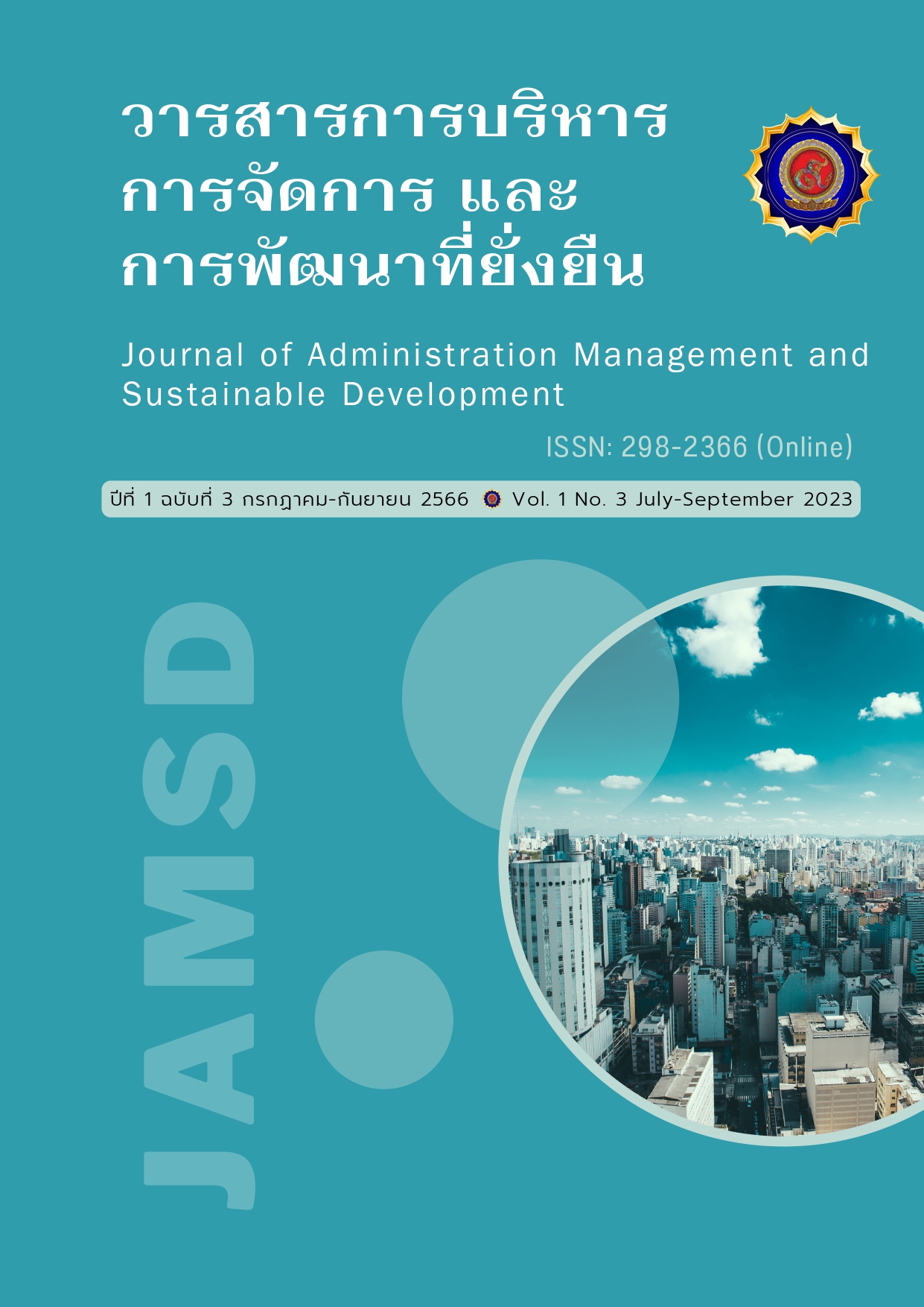Reform of local government organizations abroad: Case studies of Japan, France, United States, Germany, and Malaysia
Keywords:
Cooperation Reform, Local government organizationAbstract
The objective of this academic article is to study and compare the reform of the governance structure of local government organizations in foreign countries, including Japan, France, the United States, Germany, and Malaysia, in order to see the problems. and the establishment of a new local management model. Including the development of cooperation between the population and government agencies. For efficiency from before, make things better. Academic literature on foreign structural reform points out that Japan, France, the United States, Germany and Malaysia Has had experience in structural reform from the past to the present. The amalgamation of local areas has the same objective: development of management, budget, people, equipment, and tools. to be effective in developing their own locality From studying academic articles, it can be seen that the advantages of structural reform are 1) increasing the efficiency of human resources; 2) Creating cooperation among the people according to the democratic regime by giving people and people the opportunity to participate in local development. 3) To create comprehensive services for the people. 4) Disadvantages: causing confusion. In terms of local government structure or redundant in the area and delayed management is not necessary and appropriate for social and economic development. Especially urban communities that are expanding because they may face budget problems and regulations and supporting laws.
References
ชัชวินธ์ ตันติเวชวาณิชย์ และวสันต์ เหลืองประภัสร์. (2538). แนวทางการพัฒนาท้องถิ่นในประเทศไทย. ศึกษาเปรียบเทียบความร่วมมือและการยุบรวมท้องถิ่นในต่างประเทศ. คณะรัฐศาสตร์ มหาวิทยาลัยธรรมศาสตร์.
นรนิติ เศรษฐบุตร. (2551). สำรวจเขตการปกครองท้องถิ่นชนบทอเมริการ: เค้าตี้แจสเปอร์ รัฐเท็กซัส. วารสารปีที่ 6 ฉบับที่ 1 เดือนมกราคม - เมษายน 2551.
นิยม รัฐอมฤต, พรชัย เทพปญญา และชาญชัย ลวิตรังสิมา. (2520). การปกครองทองถิ่นเปรียบเทียบ อังกฤษ สหรัฐอเมริกา ญี่ปุ่น ฝรั่งเศส สหภาพโซเวียต. กรุงเทพฯ: โรงพิมพมหาวิทยาลัยรามคําแหง.
ปรัชญา เวสารัชช. (2543). การปกครองทองถิ่นของสหพันธสาธารณรัฐเยอรมนี. กรุงเทพฯ: โครงการสงเสริมการบริหารจัดการที่ดีโดยกระจายอำนาจสู่ท้องถิ่น.
ไพลิน ภู่จีนาพันธุ์ (2556). ระบบการปกครองท้องถิ่นของประเทศสหพันธรัฐมาเลเซีย. กรุงเทพฯ: สถาบันพระปกเกล้า ศูนย์ราชการเฉลิมพระเกียรติ 80 พรรษาฯ อาคารรัฐประศาสนภักดี ชั้น 5 (โซนทิศใต้) สุมามาลย์.
วัชรินทร์ อินทพรหม. (2560). การปกครองท้องถิ่นเปรียบเทียบประเทศไทยกับประเทศมาเลเซีย. คณะมนุษยศาสตร์และสังคมศาสตร์ มหาวิทยาลัยราชภัฏพระนคร.






